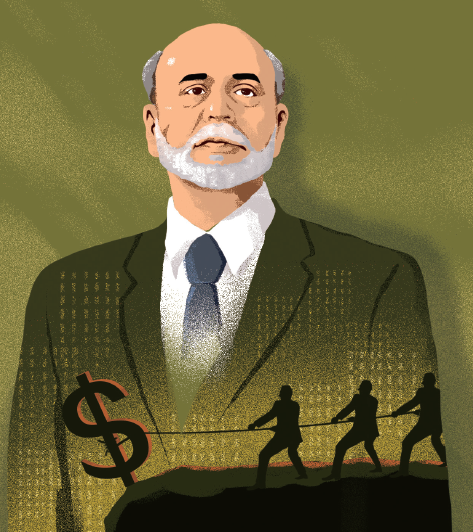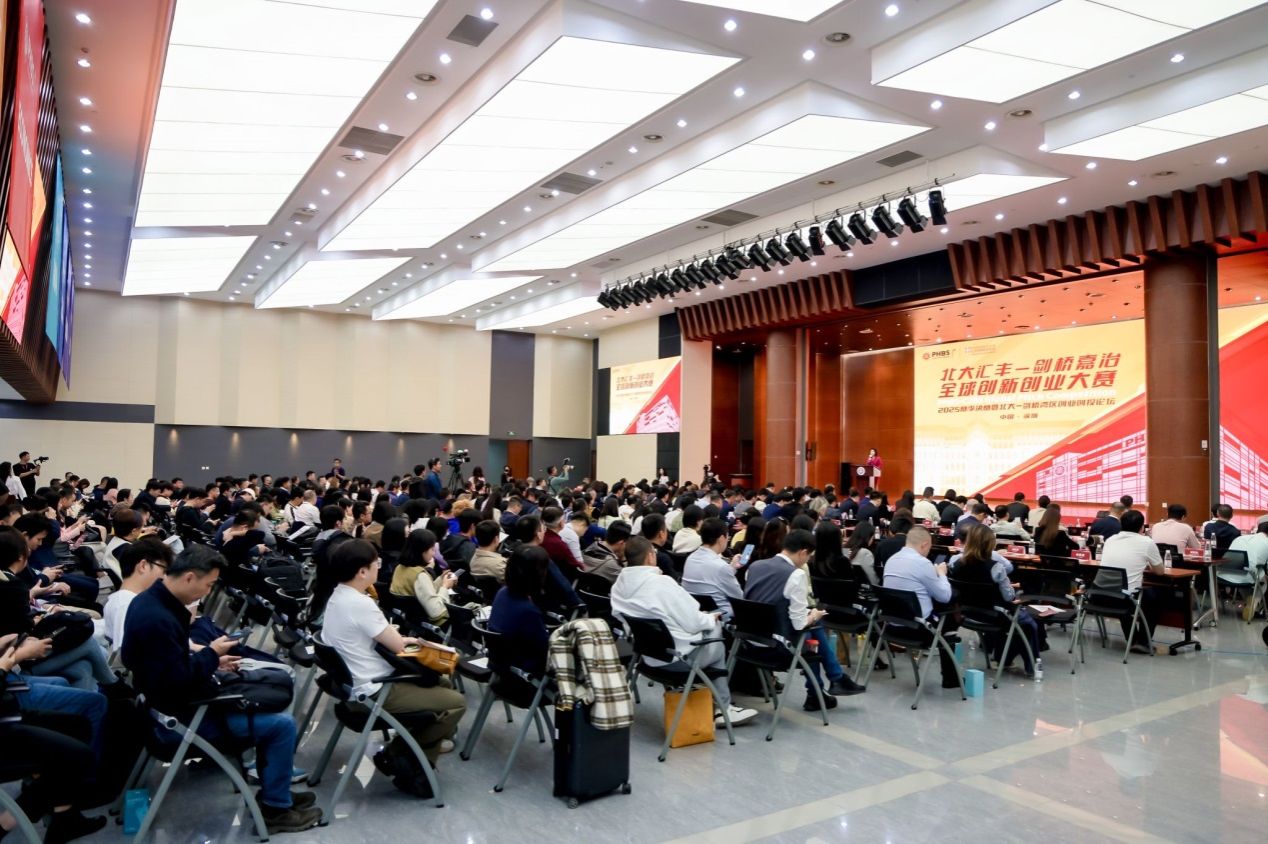Richard Koo is the Chief Economist of Nomura Research Institute. He is a Taiwanese American economist living in Japan, who funded “balance sheet recession”. In the interview with
PKU Financial Review, Mr. Koo states that, instead of forcing consumers to spend more, I will advise governments to do everything possible, to make China a more attractive place to invest.
PKU Financial Review: One of the core manifestations of a "Balance Sheet Recession" is the damage to private sector balance sheets caused by a sharp fall in asset prices. You also talked about how China seems to be going the way of Japan's past period and that many economies around the world have been plagued too. We are wondering which countries in the world do you think are at high risk of "Balance Sheet Recession" right now? And what are the coordinating policies responding to it?
Richard Koo: The country that is in most danger of entering Balance Sheet Recession in my view is still China. Because it had such a large housing bubble real estate bubble, and now I understand a lot of Chinese people do not think real estate prices will continue to go up. If people have an expectation that this is continue to go up, then they won't change behavior. They will continue to borrow, and continue to buy houses and things like that, which is what kept the Chinese economy going for so long. But once people start realizing that with the population decline and economy slowing down, maybe this is the peak of the house prices. They will have to really change their behavior. Do you really want to borrow so much money to buy these very expensive houses? And so even if the price of the asset has not fallen, once people start realizing that it might not go up any longer, that it might start stay here or come down, and that can change these people's behavior. I mean today how many people yourself included believe that China's house prices will continue to go up forever. Probably not very many. But if a lot of people start thinking that maybe this is the peak, or it might actually come down, then the behavior would change.
When the bubble burst in Japan 37 years ago, at the beginning, a lot of people said, oh come on we are top of the world Japan is No. 1, and this is just a temporary correction. And when people think this is temporary correction, they don't change their behavior, and if they don't change their behavior, there won't be any Balance Sheet Recession. But after a year or two and they began to realize, maybe we were changing wrong asset prices, and when that realization sinks in. that's when the Balance Sheet Recession really starts. Then people start changing their behavior. You don't want to carry so much debt, especially if their prices are not going to go up and actually stay where it is or come down. but once they change their behavior and trying to reduce debt, that's where the things are going in the opposite direction, and I don't sense that too many Chinese people in China believe that house prices will continue to go up, or not anymore compared to let's say a year or two ago, and that can trigger this Balance Sheet Recession.
PKU Financial Review: For both Japanese and Chinese economies, you pointed out that monetary policy and structural reform will not help the economy get out of recession, only fiscal policy should be trusted. But in summing up the causes of the Great Depression, Mr. Bernanke argues that monetary policy acted too late. Some scholars also believe that in times of economic depression, counter-cyclical adjustment should be made, and monetary policy is more important. We obviously think your point of view is more reasonable, because the "liquidity trap" is an indisputable fact. However, for China, the debt ratio is high, which limits fiscal policy. What do you think of this?
Richard Koo: Bernanke used to say, that monetary policy was too slow during 1929 to 1933 period. When he hit the same problem in 2008 as a Federal Reserve Chairman, he moved very very quickly. So when Lehman crisis happened, he brought interest rates down to zero very very quickly. But the economy still suffered, in spite of massive quantitative easing.
Under the ordinary economics we study in universities, if you increase monetary base by 400% percent, money supply, credit, even inflation rate should increase by 400%. That’s what we learned in universities. But nothing like that happened. So I think he proved himself wrong by taking those actions which he thought before he faced 2008. If Federal Reserve Bank of New York back in 1929 did this and this and that, things shouldn't have gotten so bad. That’s why he has written all along.
He was exactly at that position in 2008, when Lehman Brothers collapsed, he put all of his ideas into actual practice. He brought interest rate down to zero, put huge amount of excess liquidity into the banking system, still US economy struggled very very badly. Then a year or two after the Lehman crisis, he actually read the same book that you mentioned, the original English version (The Holy Grail of Macroeconomics), and he apparently realized that, this is Balance Sheet Recession not ordinary recession.
I found this out because we testified in the US Congress together. one of those are Humphrey–Hawkins testimony, and he told me that he read the book, the part of Japan was very very useful, and he invited me to visit him at his office.
Bernanke is Republican. Republican congressmen were telling Bernanke, look our budget deficit is so large, debt ratio is too high, so we should cut our deficit. And you would expect Bernanke a Republican to say, yeah that's correct. He didn't say that. He said the opposite. He said don't cut the deficit now, if you try to pick up the deficit now, whole thing will come crashing down. He came up with this term, fiscal cliff. That is if you push the US economy off the fiscal cliff, the whole thing will come crashing down, and there's nothing monetary policy can do to repair it.
So by then, he fully understood that this is a Balance Sheet Recession, and monetary policy cannot offset the negatives coming from fiscal consolidation, and I think that's the key reason why United States and United States only did not cut the deficit. And look at the result, even though US was the epicenter of this crisis. I mean in United States with the subprime mortgage, US actually came out of this recession faster than Europeans or British or the Japanese, because US did not try to cut the deficit. So I think he proved that in the Balance Sheet Recession, you have to have a government borrowing and spending money to keep the economy going.
So he kind of denied all of his academic work on the previous 30 years, but I really like to thank him, because he had courage to understand that and to put into practice policies he did not recommend in the past. But because of it US was saved. Other economies, which followed the kind of ordinary “university economics”, all ended up struggling so much longer, than it's necessary.
The debt is a big problem, problems should show up in a bond market, because people will refuse to buy government bond. Because there're too many of them. But look at the yield of a 10-year Chinese government bond today 2.6%, that's very very low. Countries with so much growth potential like China, it's lower than even the United States. What that means is that there's plenty of savings out there to buying bonds.
There are millions of people who talk about the debt levels. Wow, the debt is such a percentage of GDP, social debt is such a huge percentage of GDP. Why don't they talk about the amount of savings in the system? It's a balance between the savings and debt. Because if someone is saving in an economy, someone else has to borrow that money to keep the economy going. If everyone is saving, and no one's borrowing, the economy will collapse. But these people are just looking at the size of the debt and says, wow, look at this big number. But whether the big number is big enough or not, you have to look at the price, not the quantity but the price and the price amount yield or interest rates. The bond yield is very low, that means the savings is even bigger than the debt. And the Balance Sheet Recession starts when private sector starts saving money, or paying down debt. If private sector saves money, but also borrowed that money, and the economy is moving, then there's no problem. But during a Balance Sheet Recession, everyone is repairing balance sheets, paying down debt, reducing their leverage, but no one's borrowing money on the other side, that's how Balance Sheet Recession starts.
In that situation, people in the financial market those of us, who have to manage these funds for the people who save money realize that there are no borrowers out there. If there are no borrowers, the only borrower left is the government, then you have no choice. You have to buy government bonds. And that's how bond yields come down to these ridiculous low levels during Balance Sheet Recession. And if the bond yield is low, that means that is not a problem. Saving problem too much, savings is the problem.
PKU Financial Review: What do you think of the "consumerism" or "luxurious lifestyle" that people criticize today? If some seemingly extravagant consumption is not encouraged, will it affect the process of repairing balance sheets of some enterprises? Do you think that getting rid of "Balance Sheet Recession" requires a social culture that encourages personal consumption?
Richard Koo: There's a lot of talk about increasing consumption understand. But I find that Chinese consumers, just like Japanese consumers or Taiwanese consumers, they are very careful people.
Not liking other countries where if you have the money you spend them, enjoy the party, they are not like that. And when people always want to not overspend just like the Chinese consumers, saving is often the problem, not the lack of consumption. In order for economy to grow, someone has to borrow money. Because for GDP of one era to be bigger than previous period. Some people in this era must spend more than his income. If you spend exactly the same amount of income that you received, economy will be stable, but won't grow. Someone has to borrow and spend more than the previous period for economy to grow. That’s the key to economic growth, by definition by the way. I don't think we can expect them consumers to borrow continuously, if there's no income, but if it's a corporation or businesses, and if they see an opportunity where, if I borrow money and invest in this project, I should earn far more than the interest rate cost, that they will borrow and invest.
But if the businesses start looking saying that, I don't know whether I can make money on this project, then they won't borrow. And that's why economy stagnates, and so instead of forcing consumers to spend more, I will advise governments to do everything possible, to make China a more attractive place to invest, because if companies and sometimes even individuals, don't borrow money, to buy goods or invest in things, economy won't grow.
PKU Financial Review: The labor market in both China and the US has some characteristics that did not exist in the past, such as burnout, which is called "laying flatism" in China and "quiet quitting" in the US. How do you think of this situation to personal balance sheets?
Richard Koo: I think Chinese economy is highly competitive, just like in United States and elsewhere. But for people who start losing kind of hopes for the future, which is a very very serious business. If a lot of people are doing in the "tangping" situation, they're doing that because they don't think they can get a good job, or that economy won't be growing, then I think it's a job of the government to make sure that economy grows, and China I think still has tremendous potential.
Chinese people still are very hard-working, are willing to study very hard. In United States we often say that, even Jewish people don't study hard sciences anymore, which is a pretty serious situation in my view. Because if you go to you know science classes chemistry physics, you only see people with black hair, like us. And so United States have that problem, that not too many people studying very difficult subjects. But the Chinese people still willing to study these subjects and understand them, so I think it's a government's task to make sure that they get good jobs to make sure the economy is growing. China's per capita of GDP is only 12 thousand dollars, and still has long ways to go. I mean if the per capita of GDP is 30 thousand dollars, then only people who can really do highly technical things will be able to hold on to their jobs, because other jobs will all go into emerging markets. But China is not there yet, China should be able to provide a lot more meaningful jobs to lot more people.
If the economy is moving correctly, when I saw the Chinese flow funds data, which shows that Chinese companies reduce their borrowing starting around 2016 or 2015 that was very very disturbing, that should not be happening at this stage of Chinese economic development. At this stage, they should be borrowing and expanding business like crazy, government should fix those things, so this could be regulatory uncertainty as a lot of people talk about or conflict with the outside world, there may be all sorts of things that are creating this problem. Those problems get first, before we go after the "tangping" people.
PKU Financial Review: Nowadays in the situation the economic downturns, many people consider AI and other new technologies as a kind of stimulus to our economy. So they see it as a kind of new hope in the future. What do you think of this?
Richard Koo: I think for the future development in order to have a kind of high economic growth , that part is of course very important. But you have 1.4 billion people. How many of them can actually use AI? Only very very small part of it. So those small people by all means go study AI and make good use of it. But for average people, who are not as lucky as we were in being able to go to good schools and learn languages and things like that. We still have to look after the people who are not as fortunate as we were, to make sure that they have good jobs. Just pursuing the latest technology is not enough, they have to be able to make shoes or they have to make clothing.
So it has to be a much broader macroeconomic help. And I think monetary policy and fiscal policies come in. Now under the circumstances, I'm afraid monetary policy is not very useful, because for monetary policy to work, someone has to borrow money, and I see that Chinese companies are not very eager borrowers these days. Even with interest rates coming down, they're not borrowing money. So to fix this problem, you need what may be called structural reforms. This is a deregulation, lower taxes, so that people might want to borrow and invest more. But if it's coming from, you know the balance sheets in other parts, then you need fiscal policy.
So I guess my conclusion to you is that, when the problem is this broad and companies are not borrowing money, as much as they should be at this stage of Chinese economic development, maybe you should fix that problem first, instead of using all your resources on developing new technologies.















